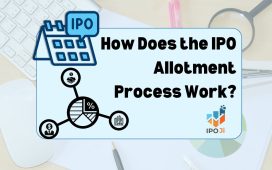It is not enough to use the most popular keyword research tools when searching keywords for eCommerce. You need to know whether a keyword converts. This comprehensive guide to eCommerce keyword research will help you determine if a keyword converts.
When you’re setting up an eCommerce shop, your top concerns may include choosing the right platform, taking great photos of your products, and the logistics costs. You can add SEO to all of these concerns. SEO is complex and you shouldn’t leave it to chance. However, you can optimize your eCommerce store by learning how to use keywords.
Searching For The Best Keywords To Convert The Most
Many posts are written about keyword search. However, many of these posts focus on tools and neglect the most important information: how do you find keywords to sell?
The keywords that work best for you may not be the most popular, but they are the ones that have a higher intent to buy.
A keyword such as iPhone has a large search volume each month, but that doesn’t mean it tells us if the user wants to buy an iPhone. You might be curious or looking to see the latest smartphones available on the market.
We must compete with many online retailers that sell “iPhone”, as well as the official Apple website and tons of technology blogs and high-authority websites.
It can take time to get to the top of Google for a search and it might not happen. It doesn’t mean that you shouldn’t mark it as a long-term goal if your company sells phones. However, you need to know that it is not the right term to base an entry strategy.
You will need to compete with other eCommerce websites for iPhone 7 plus case. While some websites may be more well-known and established than yours, they are all your competitors if you do your SEO work properly.
This keyword can be transformed into multiple variants. Take this example:
- white iPhone 7 plus case
- black iPhone 7 plus case
- Black iPhone 7 Case
These are long-tail keywords. Although they have little traffic, they can be very powerful. These terms are also less competitive than most searched.
How To Determine If A Keyword Is Competitive
You can start by looking at the Google search engine result page (SERP), for your keyword, and seeing if AdWords is used. The more ads displayed on the SERP, then the more competitive the keyword.
Google currently allows up to four ads to be displayed before the first organic search result.
Although it is possible to work day in and out to achieve the top Google position, it will still fall below the top four ads so it cannot be considered the “top position.”
It is sometimes not practical to go through all of the SERPs individually. The Keyword Planner is a Google tool that can be used to organize a long list. You will find a column with the different difficulty levels of keywords. These degrees are only indicative of the difficulty of the keyword and cover a specific range.
You can download the entire list and then open it in Google Sheets to solve this problem. You will be able to see the numerical difficulty of each keyword. The range is between 100-0 and 100, which means that there is a lot of competition.
Note – eCommerce keywords in the U.S. are highly competitive and it can be difficult to find the chinks in the armor. All niches are becoming more competitive every day. To stand out among the crowd of competitors for a few keywords, it is important to be unique. It is as easy as to dig deeper and discover the keyword that will help you make a mark in your industry.
Let’s look at an example to help you understand. This blog will focus on the “dog food” category and its derivatives. We will be trying to find long-tail keywords that are effective in this niche, which has a 100 competition rating for nearly all keywords.
We found the keyword bland food for dogs when we searched in Keyword Planner. It scored a 19. Below is a list of keywords that have lower competition. You can create a page dedicated to this keyword where you list the products that you think are the best for your dog’s diet. Internal linking can be used to rank your page on Google and generate leads for your product.
We separated the keywords into the low and medium competition and discovered one more flaw in the armor. You can target food that dogs can eat, as you can see from the image. To create urgency, you could create a page that explains the best foods for dogs. You could also offer a discount for a short time that allows you to purchase your products.
We have shown you how to avoid AdWords competition, which is often in conjunction with the organic competition. We have some very useful tools that will help you understand the cost of beating the competition to be able to reach the top organic positions on Google.
We looked at bland food for dogs as well as foods that dogs can eat. The latter was the clear winner with a lower SEO difficulty.
How Do You Determine Which Keywords Are Most Popular?
The final piece of the puzzle is to determine which keywords are most successful in generating the highest volume of sales. Many people search for iPhones but only a few of these searches will result in sales. eCommerce is not just about traffic. It’s also about sales.
Using Amazon To Estimate Sales Volume
A huge product search engine exists. It’s called Amazon and allows us to sort products by sales volume. To see the top 100 most-sold products in each category (home, garden, and clothing), click on “Bestsellers”.
We can fine-tune a bit more to see the ranking for most categories. However, access to this ranking is somewhat hidden. Look for the “Additional Information” module within each product.
This module will appear whenever you click on it. You will be able not only to see the top of the subcategory but also the position of the product in its respective categories.
There is a trick to extract the keyword or keywords driving traffic to bestsellers. This includes the product name and subcategory.
- Google the product and category.
- The first URL to appear on Amazon’s Google is yours.
- It can be sent through Ahrefs or SEMrush.
You now have the keywords that will lead you to Amazon’s category and the bestselling products.
It’s not bad, but you want more. Although this information may not be 100% accurate for all markets, it does tell us more about sales than any keyword search can.
There is an easy method that works. My latest keyword analysis trick involves creating an AdWords campaign. Why? AdWords provides the most accurate information possible on keywords. It does this by providing real data from real users.
Consider this: Even though other data may be useful and valuable, they are still estimates and terms that work for others. This method will allow you to see which terms work for you, and who buys from your company.
This information is valuable to me and can be obtained with campaigns lasting no more than a few weeks. An average cost per click of $0.75 is a fair average for what you get in campaigns from different niches. This would mean that you would have data from approximately 130 users – enough data to make crucial decisions about the SEO of your eCommerce shop.
Conclusion
First, you should only keep keywords that convert.
We have always seen food dogs can eat to be more appealing given its difficulty and competition. What if the keyword doesn’t result in sales for your website, but bland diet does?
It is clear that you should concentrate your SEO strategy on this term, as well as all other terms that have a higher conversion rate.
AdWords also has the added advantage of allowing users to reveal terms you didn’t know about, that your competitors don’t use and that do not appear in any tools.
AdWords is a great tool that helps you to see the bigger picture and allows you to forget all of your preconceptions about keywords that will bring in sales.
I have seen it happen many times. Keywords that were marked by clients as priorities at the moment of truth did not work in AdWords. Keywords that the client had previously ignored worked well in AdWords.
Once you have identified the keywords, the next step will be to tell Google without any doubt that your pages are focused on those keywords. This is done through on-page SEO. This will be a separate post.
This post was written by Kristian D’An. Kristian is the owner and SEO Specialist at Lux Digital Marketing, a St Petersburg SEO company. Kristian has been optimizing websites successfully for over 7 years. He has helped his clients achieve the #1 position on Google in several different industries.






